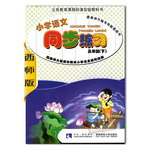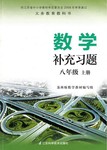题目内容
The steam engine gives us an example of heat ________ into work.
A.turns B.turned C.turning D.being turned
D

 同步练习河南大学出版社系列答案
同步练习河南大学出版社系列答案 同步练习西南师范大学出版社系列答案
同步练习西南师范大学出版社系列答案 补充习题江苏系列答案
补充习题江苏系列答案完型填空(共20小题;每小题1.5分,满分30分)
When a person is curious about something, it means he is interested in it and wishes to know something about it. There is 16 wrong with curiosity in itself. Whether it is good or bad 17 on what people are curious about.
Curiosity 18 can be foolish or wrong. Some people with nothing to do are 19 of curiosity about what their neighbors are doing. They have a strong wish to know what they are 20 home or taking outside, or why they have come home so 21 or late. To be interested in these things is silly because it is none of their 22 to know what their neighbors do or are doing. Such curiosity is not only foolish but also 23 . For most probably, it may lead to a small talk 24 often brings harm, loss of honor or disrespect to others, and thus 25 their feelings.
On the other hand, there is a 26 curiosity- the curiosity of wise men, who 27 at all the great things and try to find out all they 28 learn about them. Columbus could 29 have found America if he had not been 30 . James Walt would not have made the steam engine 31 his curiosity about the rising of the kettle lid. All the 32 in human history have been made as a 33 of curiosity, 34 the clever curiosity is never about unimportant things which have 35 or nothing to do with the happiness of the public.
| 【小题1】 |
|
| 【小题2】 |
|
| 【小题3】 |
|
| 【小题4】 |
|
| 【小题5】 |
|
| 【小题6】 |
|
| 【小题7】 |
|
| 【小题8】 |
|
| 【小题9】 |
|
| 【小题10】 |
|
| 【小题11】 |
|
| 【小题12】 |
|
| 【小题13】 |
|
| 【小题14】 |
|
| 【小题15】 |
|
| 【小题16】 |
|
| 【小题17】 |
|
| 【小题18】 |
|
| 【小题19】 |
|
| 【小题20】 |
|
The invention of the electric telegraph gave birth to the communications industry.Although Samuel B.Morse succeeded in making the invention useful in 1837,it was not until 1843 that the first important telegraph line was constructed.By 1860 more than 50,000 miles of lines connected people east of the Rockies.The following year,San Francisco was added to the network.
The national telegraph network strengthened the ties between East and West and contributed to the rapid expansion of the railroads by providing an efficient means to monitor schedules and routes.Furthermore,the extension of the telegraph,combined with the invention of the steam-driven rotary printing press by Richard
M.Hoe in 1846,revolutionized the world of journalism.Where the business of news gathering had been dependent upon the mail and on hand-operated presses,the telegraph expanded the amount of information a newspaper could supply and allowed for more timely reporting.The creating of the Associated Press as a central wire service in 1846 marked the arrival of a new era (纪元) in journalism.
【小题1】The main topic of the passage is ________.
| A.the history of journalism |
| B.the origin of the national telegraph |
| C.how the telegraph network contributed to the expansion of railroads |
| D.the contributions and development of the telegraph network |
| A.U.S. history book | B.book on trains |
| C.science textbook | D.computer magazine |
| A.Samuel Morse did not make a significant contribution to the communications industry |
| B.Morse’s invention did not immediately achieve its full potential (潜力) |
| C.the extension of the telegraph was more important than its invention |
| D.journalists have the Associated Press to thank for the birth of the communications industry |
On the day of a big event, many people came to Big Bend Mountain to watch. John Henry and the salesman stood side by side. Even early in the day, the sun was burning hot.
The competition began. John Henry kissed his hammer and started working. At first, the steam-powered drill worked two times faster than he did. Then, he started working with a hammer in each hand. He worked faster and faster. In the mountain, the heat and dust were so thick that most men would have had trouble breathing. The crowd shouted as clouds of dust came from inside the mountain.
The salesman was afraid when he heard what sounded like the mountain breaking. However, it was only the sound of John Henry at work. Polly Ann and her son cheered when the machine was pulled from the tunnel of the mountain. It had broken down. Polly Ann urged John Henry to come out. But he kept working, faster and faster. He dug deep into the darkness, hitting the steel so hard that his body began to fail him. He became weak, and his heart burst.
John Henry fell to the ground. There was a terrible silence. Polly Ann did not move because she knew what had happened. John Henry’s blood spilled over the ground. But he still held one of the hammers. “I beat them,” he said. His wife cried out, “Don’t go, John Henry.”“Bring me a cool drink of water,”he said. Then he took his last breath.
His friends carried his body from the mountain. They buried him near the house where he was born. Crowds went there after they heard about John Henry’s death.
Soon, the steam drill and other machines replaced the steel-drivers. Many laborers left their families to look for work. They took the only jobs they could find. As they worked, some sang about John Henry.
1.What does the big event mentioned in Paragraph 1 refer to?
|
A.John Henry’s work on a machine. |
|
B.A competition between John Henry and a salesman. |
|
C.John Henry’s work with his hammer and the steel. |
|
D.A competition between John Henry and a drill. |
2.The underlined word “tunnel ”in Paragraph 3 probably means “ ”.
|
A.flat ground |
B.big rock |
C.underground passage |
D.hard metal |
3. What happened to John Henry when he fell to the ground?
|
A.He was tired and had to have a rest. |
|
B.He had heart trouble and was dying. |
|
C.He was thirsty and wanted to drink some water. |
|
D.He was injured slightly and was bleeding. |
4.What do we know about John Henry?
|
A.He won the competition finally. |
B.He was buried under the mountain. |
|
C.He loved his work very much. |
D.He said nothing before his death. |
5.What can we infer from the passage?
|
A.Humans can never beat machines. |
B.John Henry was regarded as a hero. |
|
C.Laborers hated machines very much. |
D.It was easy for laborers to find work. |
 unusually
unusually products
products “Shmily” was written in the steam left on the mirror after a hot
shower, where it would reappear bath after bath. At one point, my grandmother
even opened an entire roll of toilet paper to leave “shmily” on the very last
sheet. Little notes with “shmily” scribbled (潦草地写) hurriedly were found on dashboards (仪表板) and car seats, or taped to
steering wheels.
“Shmily” was written in the steam left on the mirror after a hot
shower, where it would reappear bath after bath. At one point, my grandmother
even opened an entire roll of toilet paper to leave “shmily” on the very last
sheet. Little notes with “shmily” scribbled (潦草地写) hurriedly were found on dashboards (仪表板) and car seats, or taped to
steering wheels.